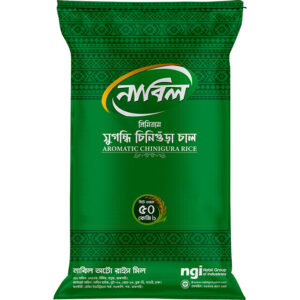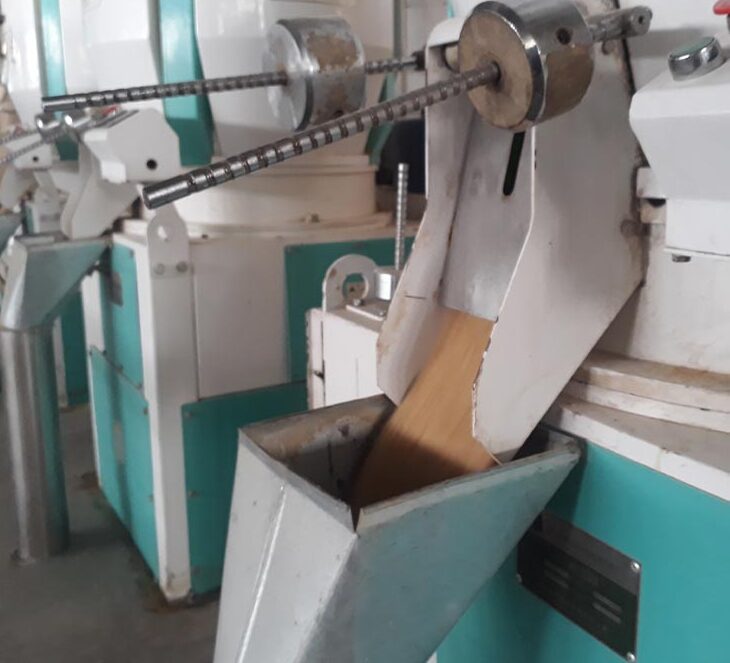Nabil Auto Rice Mills is one of the institutions of the Nabil group of industries that deals with rice. Nabil Auto Rice Mills works under Nabil Food and Beverages. Rice constitutes the fundamental sustenance for about fifty per cent of the global population. The USDA (United States Department of Agriculture) reports that around 500 million tonnes of milled rice were produced worldwide over the 2019-2020 period. China is the leading producer, constituting 30% of total output, succeeded by India (24%), Indonesia (7%), Bangladesh (7%), Vietnam (5%), and Thailand (4%). MarketWatch indicates that prominent worldwide rice-exporting nations comprise India, Thailand, Vietnam, Pakistan, and Brazil. In contrast to exports, the rice import landscape is notably fragmented, with the leading five importers representing merely 30% of global imports. Rice consumption worldwide is predominantly led by countries in the Asia Pacific area, including China, India, Indonesia, Bangladesh, and Vietnam.
Rice serves as the primary sustenance for around 135 million individuals in Bangladesh. Rice serves as the principal crop and staple aliment in Bangladesh. Approximately 70-80% of our arable land (10.5 million hectares) is allocated for rice cultivation. The cultivation of rice is significantly influenced by natural conditions. It accounts for over 48% of rural employment, around two-thirds of the entire calorie supply, and roughly half of the total protein consumption for an average individual in the country. The rice sector accounts for fifty per cent of the agricultural gross domestic product and one-sixth of the national income in Bangladesh. Following the need and importance of rice production, the Nabil group started its journey in the rice production industry by establishing rice mills. Hence, it has two production facilities.The first unit was established in 2012, and the second unit was established to enhance growth in the food industry in 2018. The mill possesses a daily capacity of 1200 metric tonnes.

Rice mills are often classified according to their producing methodology
Rice mills are often classified according to their producing methodology. Bangladesh has three varieties of rice mills such as Automated Rice Milling Facility,Semi-Automatic Rice Mill,Conventional Husking Mills. The rice milling industry in Bangladesh is experiencing a transformation.In recent years, a considerable number of individuals have ceased utilising the Dheki or traditional method for paddy preparation. This location has been commandeered by machines using automated rice mills. With the rise in per capita income in Bangladesh in recent years, individuals now favour processed rice, which is more economical, visually appealing, requires less cooking time, is devoid of stones and defective grains, and possesses an extended shelf life.Assuming the importance of rice related food grains,and feeling the importance of advanced technology in rice mills sector,Nabil group started it’s journey with auto rice mills which made a revolution during 2012 in food grains industry in Bangladesh.It was located in Dawkandi, Paba, Rajshahi in the Nabil Industrial Park,which Manufactures high-quality fragrant rice, including katarivog, atob, guti sorna, and various other premium rice varieties.
In an automated rice mill, all steps of the rice milling process are operated by automated machinery. The primary component of an automated rice mill is the parboiling unit. The primary purpose of parboiling is to boil the paddy, while the drying phase desiccates the paddy for subsequent processing. Dried paddy has undergone processing through the subsequent phases in Automated Rice Mills. Pre-cleaning, husking, husk aspiration, paddy separation, de-stoning, grading, polishing, sorting, weighing, and bagging-following these stages auto rice mills works.Auto rice mills do those following tasks like the removal of all impurities and infiltrated grains from the paddy, the removal of the husk from the paddy, the separation of the husk from the brown rice, the removal of small stones from the rice, the removal of all or part of the bran layer and germ from the brown rice, the separation of small and large broker pieces from the unbroken rice, the improvement of the appearance of milled rice by removing any remaining ran particles and by polishing the exterior of the milled kernel, the removal of foreign materials such as coloured, broken, and immatured grains from the rice, and the production of milled rice for distribution to customers.To ensure the good quality of rice ,it was significantly necessary to establish auto rice mills ;nabil group successfully clinched their dream where they aimed to get consumer satisfaction through propagating and processing standard quality of rice.
Therefore, the Nabil group of industries is able to ameliorate the food industry in Bangladesh by introducing auto rice mills with modern technology. Bangladesh’s economy is built on rice cultivation, which plays a vital role in both the country’s ability to provide food security and employment opportunities. Producing rice of a high calibre can also reach export markets, which can increase foreign exchange profits and fortify the economy. Nabil group of industries have been doing the same to boost Bangladesh’s economy. Rice is essential for rural livelihoods since it contributes approximately fifteen per cent to the country’s gross domestic product and employs millions of people in rural areas. Nabil Rice Mills contributes to regional food security by providing a constant supply of rice. This is especially significant in a country like Bangladesh, where rice is the main source of food. Along with that, quality rice is vital to meet the population’s nutritional demands. Nabil Rice Mills is fulfilling the need also by manufacturing high-quality rice in Bangladesh.


